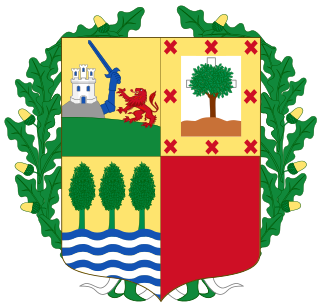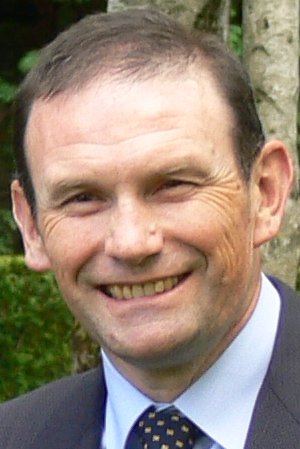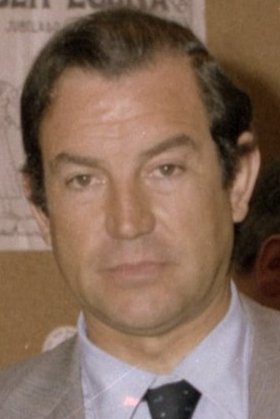
The Statute of Autonomy of the Basque Country of 1979, widely known as the Statute of Gernika, is the legal document organizing the political system of the Autonomous Community of the Basque Country' which includes the historical territories of Alava, Biscay and Gipuzkoa. It forms the region into one of the autonomous communities envisioned in the Spanish Constitution of 1978. The Statute was named "Statute of Gernika" after the city of Gernika, where its final form was approved on 29 December 1978. It was ratified by referendum on 25 October 1979, despite the abstention of more than 40% of the electorate. The statute was accepted by the lower house of the Spanish Parliament on November 29 and the Spanish Senate on December 12.

The 2005 Basque regional election was held on Sunday, 17 April 2005, to elect the 8th Parliament of the Basque Autonomous Community. All 75 seats in the Parliament were up for election.

The Basque Autonomous Community [ A.C.], also officially called Euskadi [], is an autonomous community in northern Spain. It includes the Basque provinces of Araba, Bizkaia, and Gipuzkoa. It also surrounds an enclave called Treviño.

The 2001 Basque regional election was held on Sunday, 13 May 2001, to elect the 7th Parliament of the Basque Autonomous Community. All 75 seats in the Parliament were up for election.

The 1998 Basque regional election was held on Sunday, 25 October 1998, to elect the 6th Parliament of the Basque Autonomous Community. All 75 seats in the Parliament were up for election.

The 1994 Basque regional election was held on Sunday, 23 October 1994, to elect the 5th Parliament of the Basque Autonomous Community. All 75 seats in the Parliament were up for election.

The 1990 Basque regional election was held on Sunday, 28 October 1990, to elect the 4th Parliament of the Basque Autonomous Community. All 75 seats in the Parliament were up for election.

The 1986 Basque regional election was held on Sunday, 30 November 1986, to elect the 3rd Parliament of the Basque Autonomous Community. All 75 seats in the Parliament were up for election.

The 1984 Basque regional election was held on Sunday, 26 February 1984, to elect the 2nd Parliament of the Basque Autonomous Community. All 75 seats in the Parliament were up for election.

The 1980 Basque regional election was held on Sunday, 9 March 1980, to elect the 1st Parliament of the Basque Autonomous Community. All 60 seats in the Parliament were up for election.

The 2012 Basque regional election was held on Sunday, 21 October 2012, to elect the 10th Parliament of the Basque Autonomous Community. All 75 seats in the Parliament were up for election. The election was held simultaneously with a regional election in Galicia. Lehendakari Patxi López announced the parliament's dissolution half a year ahead of schedule as a result of the People's Party (PP) withdrawing their support from his government, prompting Galician president Alberto Núñez Feijóo, who had been scheduling a snap election in Galicia to be held at some point throughout late 2012, to make his decision to have a simultaneous vote.

Álava is one of the three constituencies represented in the Basque Parliament, the regional legislature of the Basque Autonomous Community. The constituency currently elects 25 deputies. Its boundaries correspond to those of the Spanish province of Álava. The electoral system uses the D'Hondt method and a closed-list proportional representation, with a minimum threshold of three percent.

Gipuzkoa is one of the three constituencies represented in the Basque Parliament, the regional legislature of the Basque Autonomous Community. The constituency currently elects 25 deputies. Its boundaries correspond to those of the Spanish province of Gipuzkoa. The electoral system uses the D'Hondt method and a closed-list proportional representation, with a minimum threshold of three percent.

Biscay is one of the three constituencies represented in the Basque Parliament, the regional legislature of the Basque Autonomous Community. The constituency currently elects 25 deputies. Its boundaries correspond to those of the Spanish province of Biscay. The electoral system uses the D'Hondt method and a closed-list proportional representation, with a minimum threshold of three percent.

This is the results breakdown of the European Parliament election held in Spain on 10 June 1987. The following tables show detailed results in each of the country's 17 autonomous communities and in the autonomous cities of Ceuta and Melilla.

This is the results breakdown of the European Parliament election held in Spain on 15 June 1989. The following tables show detailed results in each of the country's 17 autonomous communities and in the autonomous cities of Ceuta and Melilla.

This is the results breakdown of the European Parliament election held in Spain on 12 June 1994. The following tables show detailed results in each of the country's 17 autonomous communities and in the autonomous cities of Ceuta and Melilla.

This is the results breakdown of the European Parliament election held in Spain on 13 June 2004. The following tables show detailed results in each of the country's 17 autonomous communities and in the autonomous cities of Ceuta and Melilla.

This is the results breakdown of the European Parliament election held in Spain on 26 May 2019. The following tables show detailed results in each of the country's 17 autonomous communities and in the autonomous cities of Ceuta and Melilla.

The next Basque regional election will be held no later than Sunday, 21 May 2028, to elect the 14th Parliament of the Basque Autonomous Community. All 75 seats in the Parliament will be up for election.



















